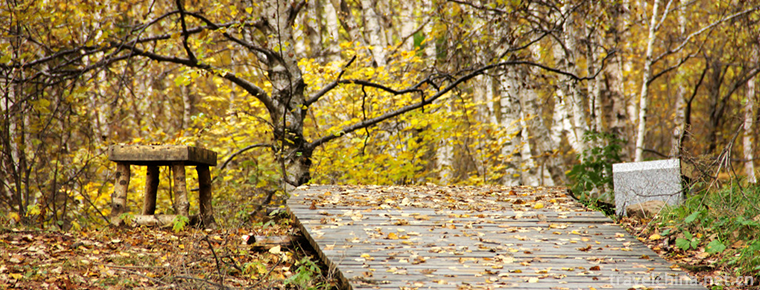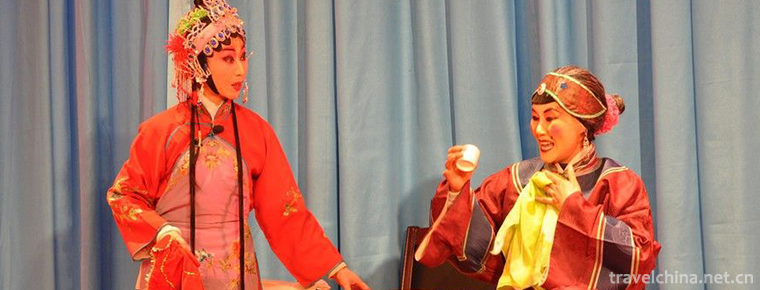March 3rd Festival of Li Nationality
March 3rd Festival of Li Nationality
The third day of March (the third day of the third month of the third lunar month) is the grandest traditional folk festival of the Li people in Hainan Province. It is also a beautiful day for the young people of the Li nationality. It is also called Love Day and Love Day. It is held every year on the third day of the third month of the third lunar month. It is a traditional festival for the Li people in Hainan to mourn their hard-working and brave ancestors and express their yearning for love and happiness.
On May 20, 2006, the March 3 Festival of the Li Nationality was approved by the State Council to be included in the first batch of national intangible cultural heritage list (category: folklore).
historical origin
The origin of the March 3rd Festival can be divided into two categories:
According to the first theory, a long time ago, the Li people living along the Changhua River suffered a terrible flood, and the people and animals died, leaving only a pair of brothers and sisters named Tianfei and Nanyin. When they grew up, they decided to separate to find their partners and meet again at the foot of the Yanwo Mountains on March 3 every year. Every year on March 3rd, Nanyin and the princess and their descendants will come back here to welcome spring. In order to commemorate them, the Li family called the stone cave the Mother's Cave, and March 3 naturally became a grand festival of the Li family.
According to the second theory, it is said that long ago, there was a crow spirit in the cave, which did many evil things, so that the people of Li could not live and work in peace and contentment. One day, the crow spirit caught the beautiful girl of the Li nationality, the lover of the Russian woman, Agui, with a sharp knife, bow and arrow, went up to the mountain to rescue her, and was killed by the crow spirit. Runiang was so sad at the news that she killed the crow while it slept soundly, avenged Agui and did great harm to the Li people. Russian Niang remained unmarried all her life. Every year on March 3rd of the lunar calendar, she would go to Oxiandong to sing her love song when she fell in love with Agui. Later, in memory of her, the Li people named the cave Ouniang Cave (Changjiang).
Every year on March 3, young men and women of the nearby unmarried Li nationality gather in Oxianling, singing love songs to find their lover. This activity has been expanding year by year and spread to various Li-cell residential areas in Hainan, forming a grand traditional festival in Hainan Li-cell. There are records related to "March 3" in the historical books of Song Dynasty. Song Fan Chengda's "Guihai Yu Heng Zhi" said: "Spring is swing meeting, men and women in adjacent tunnels dress up to travel, hand in hand, sing and answer each other, known as opera."
Main activities
Every spring, on March 3 of the lunar calendar, men and women in Mobil dialect dress up and take rice wine, bamboo slips, rice and zongzi from all sides to the assembly site to worship their ancestors. When night falls, older people gather to drink and talk about the past, while young men and women meet in groups. People sing songs all night to convey their feelings.
The Li people living in the southern part of Hainan Island, on March 3rd, take pigs'heads, rice wine and rice balls as sacrifices to pray for their ancestors' peace in Laobi Cave and Ganshiling Cave in Sanya. Li nationality in Wuzhishan Hemu area, on the ox day in March of the lunar calendar, kills pigs at the Mutou house to hold a feast, gathers people to beat gongs and drums to dance the dance of sacrificing ancestors, celebrates the blessings brought by spring, invites blessed souls for pregnant women, and wishes to have boys and daughters in the future.
In the morning, the girls crowded to Wuzhishan in their national costumes. They hang bamboo tubes on trees and dive into the dense forest nearby. When the sun rises in the east, the guys with umbrellas whistle and come to ()()()()()()()()()()()()()()()()()()()()()()(). Poe, the representative of the election uses the Li language of firewood dancing to call "stripping", which is the voice of Li Song asking in the forest.
After a while, the girls rushed out together and the young men and women danced and sang together. The affectionate girl went to the young man and talked side by side under the umbrella. If they agree, they will give gifts to each other.
During the festival, young men and women usually perform "jumping bamboo pole". Today, it has become a pole-jumping event involving 12 or 16 people, 8 people swinging poles, 4 or 8 people jumping poles. The activity begins with the sound of gongs and drums and music. Eight pole-holders rhythmically open and close the bamboo poles in their hands, while the pole-jumpers jump and turn in the bamboo poles with the opening and closing of the poles.
This activity is also a means of spreading love among Li youth. Winning girls are often the goals pursued by young men, and winning boys are often the girl's sweetheart.
The venue is usually located in the open rubber forest, quiet, cool and quiet: sometimes a couple of lovers quietly leave the campfire, the young man hangs the ear bell on the girl's ear, the deer bone hair tied in the girl's hair bun, the girl knitted her own elaborate seven-color belts tied to the waist of the lover, the two sides promise that they will not be separated next March and March.
Festival characteristics
On this day, the people of the Li nationality celebrate songs, wrestling, tug-of-war, shooting and swinging heartily. They express their praise for life, their love for labor and their persistent pursuit of love by singing and dancing. Throughout the festival, the atmosphere is cheerful and enthusiastic, intoxicating.
In addition, March 3rd is also the most grand folk traditional festival for the Li people in Hainan. It is a beautiful day for the Li youth, also known as Love Festival and Love Day. It is also called "Fu Nianfu" in Li language.
Inheritance and protection
Inheritance value
March 3rd Festival is a cultural resource handed down by the Li people for thousands of years. It is the most specific and typical manifestation of the Li culture. It is also a traditional festival for young men and women of the Li nationality to pursue love and happiness. The main features and values of Li's folk customs are the concentrated reflection of Li's production, life and entertainment, as well as the window for the world to understand Li's culture and history.
Every March 3, Hainan Li people's inhabited areas hold large-scale and rich celebrations, such as song contest, spring fire party, lottery car competition, lantern exhibition, traditional national sports competition, young men and women's song and dance performance, and economic and trade activities. The March 3rd Festival of the Li Nationality has become a grand event to enrich tourism products, disseminate national culture and promote national economic development, attracting tens of thousands of domestic and foreign tourists every year.
Inheritance status
The inheritance of the "March 3" Festival of the Li Nationality mostly relies on oral instruction and personal instruction, and there are many restrictions on its inheritance and continuation. With the "post-80s" and "post-90s" groups growing into the main body of social life, their lifestyles and habits are different from those of the older generation. They have received better cultural education. Many people prefer to choose more modern forms of entertainment, which is not conducive to the identification and inheritance of intangible cultural heritage such as traditional festivals (including "March 3").
social influence
On the evening of April 17, 2018, the party commemorating the 30th anniversary of the establishment of the provincial special economic zone in Hainan and the traditional festival of Hainan Li and Miao nationalities "March 3" in Qiongzhong District opened on March 3 Square in Qiongzhong Li and Miao Autonomous County. Wang Qionglong, Deputy Secretary of Qiongzhong County Party Committee, County governor, and Wang Zhebin, chairman of the CPPCC, attended the party. Zhang Changfeng, Deputy Secretary of the CPC County Committee and Secretary of the Political and Legal Committee, delivered a speech at the opening ceremony. The evening also invited guests from retired leading cadres in Qiongzhong and journalists from major media in the province to attend the evening.


-
jianchuan museum cluster
Jianchuan Museum is called Jianchuan Museum Settlement in Chengdu City. Founded by private entrepreneur Fan Jianchuan, it is located in Anren Town, Dayi County, a small museum town of China.
Views: 217 Time 2019-01-21 -
Liaoheyuan National Forest Park
Liaoheyuan National Forest Park is located in Dawopu Forest Farm, Pingquan County, Hebei Province. It is named for its birthplace of Liaohe River in China..
Views: 147 Time 2019-01-30 -
Yaoshi Scenic Spot
The Youshi Scenic Spot is located on the South Bank of Youshi Hainan, Haojiang District, Shantou City, across the sea from Jinping District. It is the first provincial-level scenic spots in Guangdong .
Views: 734 Time 2019-02-07 -
Peking Man Site at Zhoukoudian
Zhoukoudian Peking Man Site, located in Longgu Mountain, Fangshan District, Beijing, is an important Paleolithic site in China. Since 1927, three complete skulls and some remnants have been found in t.
Views: 108 Time 2019-03-20 -
Heap harmonics
"Heap Harmony" first spread in the Yarlung Zangbo River Basin, the high terrain west of Shigaze to the whole area of Ali circle dance, and later gradually prevailed in Lhasa. It was the firs.
Views: 96 Time 2019-04-28 -
Hui Folk Stories
Hui Folklore Stories is a book published by Ningxia People's Publishing House in 2009 by Li Shujiang and Wang Zhengwei..
Views: 356 Time 2019-05-04 -
Laozi Shandong Province
Shandong Laozi is a traditional opera art form which spreads in Shandong Province. It evolved from the ancient "lotus flower falls". Laozi instruments are mainly cymbals (commonly known as G.
Views: 164 Time 2019-06-13 -
Xilu Bangkok
Xilu Bangzi a Xilu Bangzi is an ancient traditional opera. Now the embryonic form of Hebei Bangzi was formed in Qingdaoguang period. Its predecessor is Shanshan-Shaanxi Bangzi, which was introduced in.
Views: 197 Time 2019-07-01 -
Han Yu
Han Yu (768 - 824 December 25th) retreated. Henan Heyang (now Henan Province Mengzhou People. Claiming to be "Changli," the world is called "Han Changli" and "Mr. Changli".
Views: 154 Time 2019-09-07 -
Lemon Honey Tea
Honey lemon tea is made of honey and lemon. It has many functions such as whitening, nourishing, lowering blood fat, clearing heat, detoxifying, moistening and drying. Lemon contains vitamin B1, vitam.
Views: 358 Time 2020-03-16 -
Jinhua Alsophila Nature Reserve
Jinhua Alsophila spinulosa nature reserve is a provincial nature reserve approved by Sichuan Provincial People's Government in 1987. In sifangjinggou, Jinhua Township, 48 kilometers southwest of Rongxian City.
Views: 156 Time 2020-10-15 -
Main scenic spots in Luzhou
Located in Luzhou city. It was built in the 18th year of Shaoxing in the Southern Song Dynasty (1148), in the year of Hongzhi of Ming Dynasty (1488-1505), in the 14th year of Guangxu of Qing Dynasty (1884) and in 1985, and has been well preserved. .
Views: 87 Time 2020-12-14










